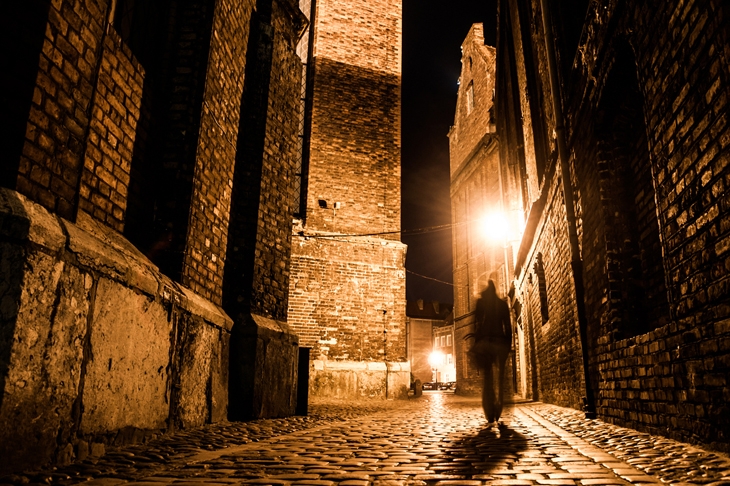Wolfgang Herrndorf’s Sand (Pushkin Press, £14.99) is set in 1972 and moves back and forth between a North African city and a small unruly town surrounding an oasis. One man is on the run through the desert regions: he has no name, no memory and no clue as to why he’s being pursued by at least three different parties, all intent on doing him harm. Other characters inter-mingle with this tale of woe: ineffectual detectives, a glamorous sales agent, a commune of hippies, and a paranoid spy whose sense of purpose evaporates in the midday heat. The sun bakes the streets, the sand, people’s faces. And their minds.
The amnesiac really does suffer, painfully at times, running blindly from one problem to the next. Every element of his story is woven together masterfully, with grain upon grain of detail added to a landscape that never stops shifting underfoot. It’s part Pynchon, part Beckett, a crime story told by Lewis Carroll in a particularly nihilistic mood. Sadly, Herrndorf took his own life after being diagnosed with an incurable brain tumour. Sand is a perfect legacy, a unique voice telling a powerful and complicated story that offers no happy endings. Yet the force of life that drives our nameless hero ever onwards offers a modicum of hope. The novel shares this life force, even as the dark closes in.
In 1895 the people of London talk of only one consulting detective, the renowned Sherlock Holmes. Mick Finlay’s debut mystery Arrowood (HQ, £12.99) introduces another detective to the city, one of far lowlier status. William Arrowood lives and works amid the grime, noise and poverty of south London and takes on the cases of the penniless and the downtrodden. It’s a great idea for a series and Finlay revels in his descriptions of the locale. Even disguised as a beggar, Holmes would have little chance of blending in here, or even surviving. But for Arrowood, and his sidekick Barnett, this is natural territory.
The plot concerns a disappearing Frenchman and revolves around Irish freedom fighters and local gangsters, and the murder of a serving girl. Arrowood is a fantastic creation, sweating, beetroot red of face, his stomach bulging, but he works with subtlety — decoding emotions, reading expressions and gestures, seeking evidence in the things that are said, or unsaid, understanding human psychology rather than knowing 25 different types of soil. In the funniest passages he dismantles his famous rival’s cases clue by clue, explaining just why Holmes is either wrong, or else just plain lucky. Every belch, fart, stench, expletive and drunken howl of despair is rendered for our pleasure, and our fingers might well come away from the pages stained with soot.
Delphine de Vigan’s Based on a True Story (Bloomsbury, £12.99) is a deft examination of the blurred realm between fiction and reality. The narrator of the story is also called Delphine, and she’s an author struggling to write the follow-up to a successful novel. Into her life steps a new friend, known throughout only by the initial ‘L’. Sophisticated, confident and smart, L starts to take over Delphine’s life and work. Unhappy with the author’s plans for the new book, she forces a new subject matter on her. At the same time she insinuates her way into Delphine’s personal affairs. She starts to dress like Delphine, and even takes her place at a literary event. As this act of possession continues, Delphine loses her power to write. The takeover is nearly complete.
Ever since Gone Girl there have been many attempts at thrillers involving unreliable narrators, but I believe this is the very best of them. Despite its philosophical intent, the novel casts a spell of enchantment: there’s always some new anxiety or fear to make the mind wonder — just what the hell is going on? Is the mysterious L real, or a character in a writer’s disturbed imagination? Such questions continue to the final page. Just don’t peek ahead! The very last word will make you rethink everything you’ve just read. Utterly brilliant.
Nik Cohn’s I Am Still the Greatest Says Johnny Angelo (No Exit, £12.99) is not exactly a crime novel, although it certainly deals with the extremes of human behaviour. Written when Cohn was just 19 and first published in 1967, the story explodes with flashy youthful energy. We follow the career of Johnny Angelo: warped infant, teenage hoodlum, world famous pop star. And this is back in the days when a single gesture might cause uproar: Elvis Presley’s leg twitch, Jagger’s louche moves — even Ziggy Stardust’s roots can be found here. And it has to be said, Angelo outdoes them all. He goes further and deeper into the dark, sparing no one in his ego-driven quest for pure sensation.






Comments